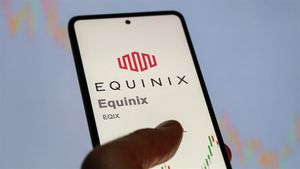Wikipedia has long served as the dominant model for a free, public-facing encyclopedia, built on the principle that "anyone can edit." This crowdsourced approach has created a repository of unprecedented scale and breadth. However, its anonymous and decentralized nature also gives rise to persistent challenges related to reliability, bias, and manipulation. A new verified model, on the upcoming verified Netverse app-less platform, seeks to address these shortcomings by founding its content creation on the contributions of verified individuals and entities.
Creating a Wikipedia-style platform using verified individuals will improve upon the current model in several key areas. Phinge through Netverse aims to address some of Wikipedia's long-standing criticisms, including the reliability of anonymous editors, content bias, and the difficulty of resolving disputes.
Improved reliability and credibility
- Accountability of content: The Netverse platform will only have verified individuals and entities. Editors would be directly associated with their contributions, promoting a higher degree of accountability. This will make it more difficult for bad actors to engage in vandalism, misinformation, and manipulation since their identity would be tied to their actions. Contributors could remain anonymous to the public but would still be verified individuals and entities through Netverse for more reliability.
- Expert authorship: By requiring verified identities, Netverse will differentiate itself through its verified individuals and experts. For specialized topics, an expert's entry could be given a special designation, signaling to users that the information comes from a verified credible source with relevant qualifications. Wikipedia, in contrast, specifically discourages editors from "arguing from authority," treating all editor contributions equally regardless of expertise.
- Greater transparency: A Netverse verified-user model will offer more transparency than Wikipedia's anonymous or pseudonymous system. Users will know the users are verified and could know who is behind the information they are reading, allowing them to better assess potential biases or conflicts of interest.
- Mitigation of systemic bias: Wikipedia has been criticized for systemic biases related to gender, race, and topic coverage, often a result of its overwhelmingly male and white editing base. A platform with transparent, verified users could actively recruit a more diverse editor base to address this imbalance.
- Clearer conflict-of-interest guidelines: While Wikipedia has rules against editing articles where a conflict of interest exists, the anonymous nature of editors makes this difficult to enforce. A Netverse verified-user platform would make conflicts of interest immediately transparent, and users could declare them upfront, establishing credibility and building trust.
- Reduced "mob rule": By having only the contributions of verified experts, a Netverse platform looks to combat the "mob rule" dynamic that sometimes occurs on Wikipedia, where large groups of non-experts can override the insights of actual specialists.
- More efficient dispute resolution: On Wikipedia, content disputes can lead to endless edit wars and lengthy arbitration processes driven by anonymous editors. With verified identities, Netverse will establish a more efficient and authoritative system for resolving content disputes. The process could be moderated by a board of verified experts in the field.
- Streamlined content review: Having a designated group of verified experts could streamline the process of reviewing and approving new or controversial articles. Wikipedia's "notability" requirements and article approval process are often criticized as overly bureaucratic and difficult to navigate for new contributors.
- Combatting sockpuppetry: The use of multiple fake or anonymous accounts (known as "sockpuppets") to sway debates or manipulate content is a persistent problem for Wikipedia. Verified identities would effectively eliminate this issue, ensuring all contributors represent a unique individual.
| Feature | Netverse (Verified Individuals) | Wikipedia |
| Accountability | Contributors are tied to their real-world, verified identity, which could be seen by the public or other contributors. This increases accountability for factual accuracy and neutrality. | The majority of contributors are anonymous or use pseudonyms, which is a core tenet of the platform. While a user's IP address may be visible, there is less personal accountability for edits. |
| Editorial quality | Quality can be curated through a system that favors or highlights expert authorship. Information from a subject-matter expert is clearly identified as more credible than a layperson's contribution. | The "anyone can edit" model operates on the principle that the collective wisdom of volunteers will lead to accurate results. It specifically discourages "arguing from authority," which means the contributions of an expert and an amateur are treated equally. |
| Reliability | The platform will have greater transparency and a more authoritative system for dispute resolution. If a conflict arises, it can be moderated by a panel of verified experts, leading to faster, more authoritative outcomes. | Conflict resolution can be lengthy, with edit wars and extensive arbitration processes often influenced by groups or "gangs" of editors. Inconsistencies in the application of policies can occur across articles. |
| Dealing with bias | With a transparent system, conflicts of interest are more visible and can be disclosed upfront. The platform could actively recruit a diverse group of verified experts to mitigate systemic biases. | Due to a historically non-diverse editor base, Wikipedia has faced criticism for systemic gender and racial bias in its coverage. Conflict-of-interest editing is hard to detect and enforce with anonymous users. |
| Combating manipulation | A verified-individual system inherently eliminates sockpuppetry (using multiple fake accounts) and makes it more difficult for special interests to engage in targeted, inauthentic editing. | Manipulation and sockpuppetry are persistent issues that require constant vigilance from the community. Inauthentic edits from political parties and companies have occurred. |
| Content depth and scope | A new platform with verified editors would likely start with less content than Wikipedia, potentially taking time to build and scale. Coverage at first will likely be focused on subjects with available, willing experts. | It is the largest general encyclopedia ever created, with millions of articles on nearly every conceivable topic. Its open nature has allowed it to grow at an unmatched pace. |
| Privacy and safety | Users identities would only be revealed to the public if the individual user chooses to do so. Identifies will be known to Phinge to assure all Netverse users they are verified users. | By offering anonymity, Wikipedia protects contributors who might face safety risks for editing politically sensitive or controversial topics. |
| Encouraging contributions | Because revealing a users identity publicly is voluntary, this will encourage more contributors to the subject matters. | Anyone can edit at any time without creating an account. This low barrier to entry is Wikipedia's greatest strength for attracting millions of volunteers and ensuring information is constantly updated. |
Summary
The comparison between a verified-individual platform like Netverse and Wikipedia highlights a fundamental trade-off between scale and credibility. Wikipedia's core strength lies in its open, "anyone can edit" model, which has enabled it to become the world's most comprehensive and widely used general encyclopedia. This accessibility fosters a massive volunteer community, ensures rapid updates, and covers an enormous breadth of topics at no cost to the user. Yet, this model is also its greatest weakness, leading to vulnerabilities like misinformation, systemic bias, and content manipulation due to its anonymous editing structure. As the Netverse community grows so will Netipedia, to become the foremost verified encyclopedia-type pages and platform.
In contrast, Netverse verified platform of individuals and entities, through Netipedia will offer a compelling solution to these credibility issues. By tying contributions to real-world identities, it will enhance accountability, makes conflicts of interest transparent, and allows for the prioritization of expert insights. This will likely result in higher-quality, more reliable content, especially on specialized or sensitive topics.
You may learn more about Netverse and its patented, magnetically attachable smartphones and devices by visiting Phinge's websites at
https://www.phinge.com
To get on a contact list please fill out the online form here
https://www.phinge.com/netverseai.html
You may view Phinge's Crunchbase profile here
https://www.crunchbase.com/organization/phinge
You may view Robert DeMaio's Crunchbase profile here
https://www.crunchbase.com/person/robert-charles-demaio
About Phinge Corporation
Phinge was founded and through Netverse® is being developed to disrupt today's outdated App technologies, including the App-store duopoly, by partnering with and giving its users and businesses ownership and control of their data, enhanced privacy and a better overall mobile experience including their ability to monetize it.
Phinge through its upcoming patented Netverse App-less technology platform with proprietary AI, will be a better, safer, verified and rewarding alternative platform and technology for users and third party businesses and developers to today's App stores, operating systems and ecosystems of Apple, Google and Android.
Netverse will not be an App or Super App that resides on the major technology platforms of today.
Instead, it will be a standalone, all-in-one, app-less platform, accessible only through Phinge's revolutionary, patented, Mobile Hardware which includes Magnetically Attachable/Detachable Phones, Tablets, Mobile Gaming Systems and peripherals like the stylish, wireless earbuds with interchangeable batteries and built-in sensor screens for continuous usage without recharging and Smart Watches that never need to be charged as they come with stylish external, interchangeable bezels with built-in rechargeable batteries and come in a variety of colors, patterns and finishes.
Netverse will be a verified, centralized-decentralized platform.
Centralized in the way it provides universal safeguards through verification of all users, businesses, organizations, entities and IP through Phinge's patented Netverse technologies and hardware.
Centralized because Phinge and Netverse will be compliant with all government regulations regarding data and privacy.
Decentralized because all thirty party platforms will be compliant with all government regulations regarding data and privacy as soon as they are verified and join Netverse.
Decentralized because its users, businesses, organizations and entities will have the power to live, work and thrive in a verified world.
Netverse will benefit all verified users and approved, verified third party businesses, developers and platforms on Netverse in ways not possible with today's technology including total verification of all users, businesses, organizations, platforms and entities.
Photos: (Click photo to enlarge)




Source: Phinge Corporation
Read Full Story - Credibility First: Phinge to Introduce Netipedia, Wikipedia-Style Pages: Verified Contributions Prioritizing Reliable Information Over Anonymous Edits | More news from this source
Press release distribution by PRLog






